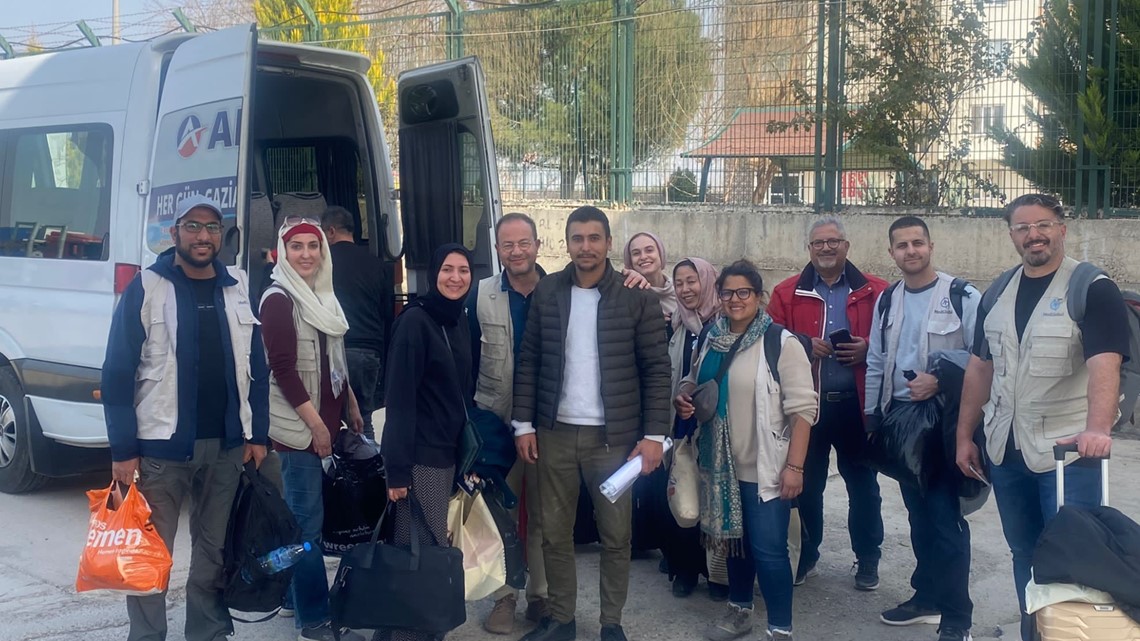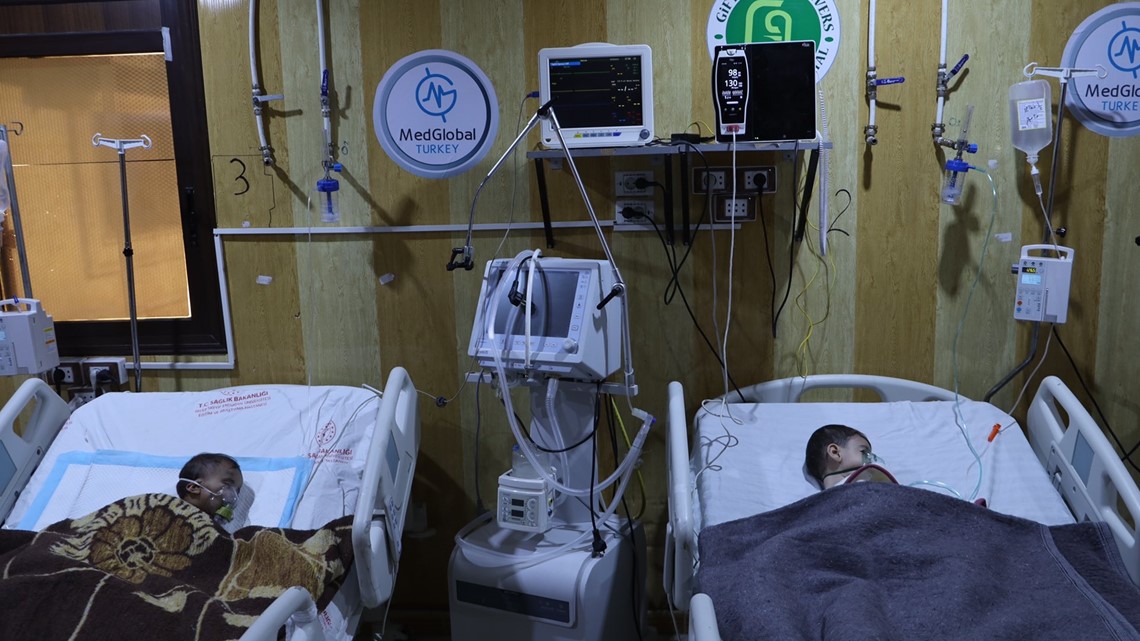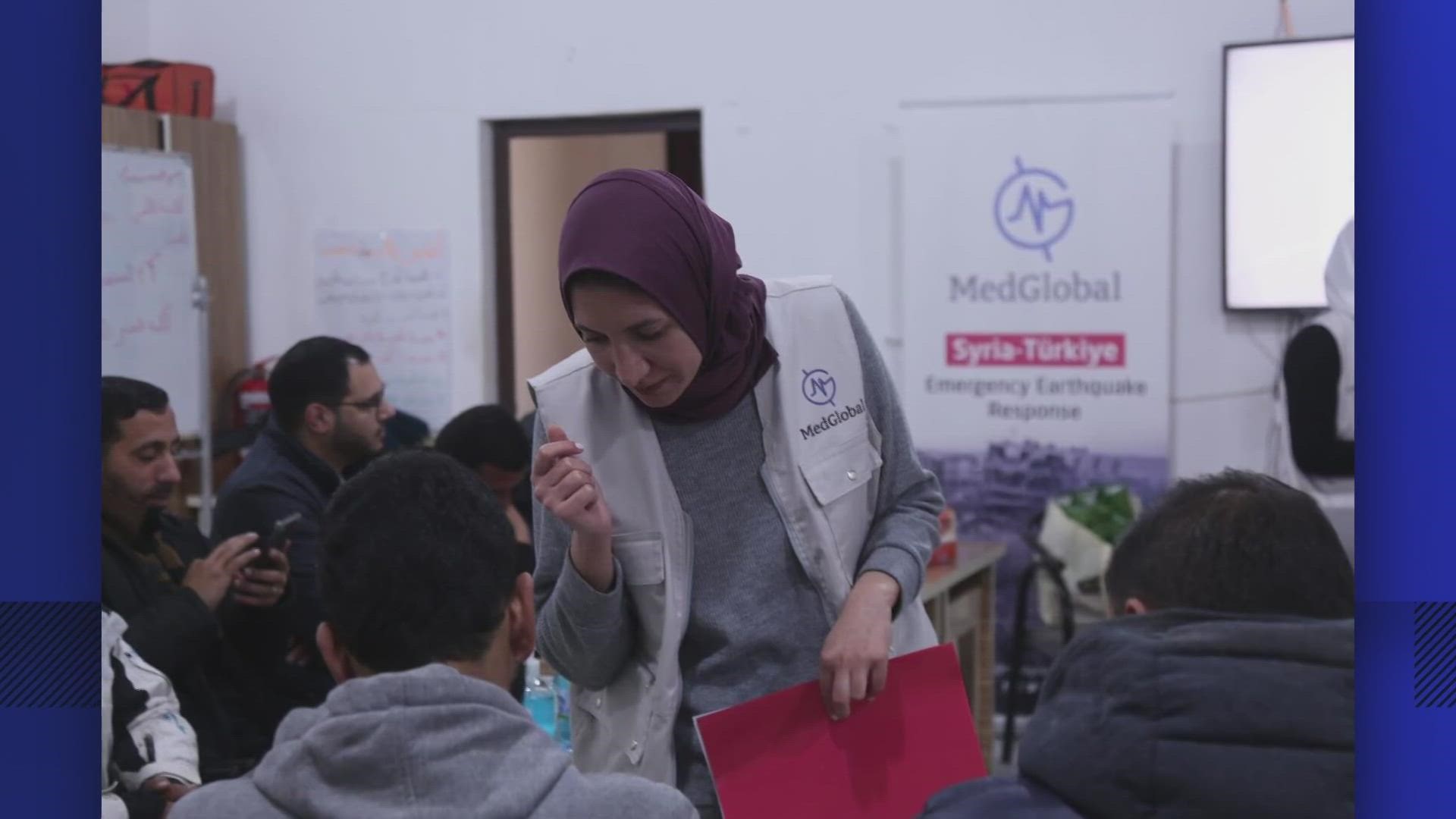DALLAS — Long before Nora Abdullah even knew she’d become a doctor, she made trips to Syria to see her family.
She was born and raised in Texas but fondly remembers those childhood visits.
The Syria she knew then is not the Syria of today.
“Just seeing the amount of people that are displaced and living there looking for somewhere safe was surreal,” Abdullah said hours after returning to Texas.
She is now Dr. Nora Abdullah, a psychiatrist at UT Southwestern Medical Center.
She landed back home in Dallas late Saturday night after spending two weeks in Syria and Turkey on an emergency medical mission with the nonprofit group MedGlobal.
The region was hit by a massive earthquake and multiple devastating aftershocks in February.
The death toll is now approaching 50,000.


Abdullah is one of twelve American doctors who made the trip.
They worked at a hospital in Darkush, where Abdullah treated a woman who lost almost all of her children in the earthquake.
“And all she could do is replay what happened during the earthquake over and over. She was in the hospital due to crush injuries to her leg – her legs were charred black,” Abdullah said. “Over and over all she can do is repeat, did I kill my children? How did my children die?”
Abdullah said the most important thing for a mental heath care worker to do is listen.
She said news reports from the region can’t capture the scope of the devastation or the fear survivors feel.
“There are people sleeping in their cars or sleeping in tents even if their homes have been untouched because they’re afraid of when the next earthquake might strike,” she said.
While Abdullah and the team were in Turkey, they stayed in a facility with modern conveniences, but when they moved to Syria the conditions were more difficult.
They stayed in temporary containers set up at a hospital in Azaz with one tiny heater in bitter cold.


“There’s a guilty feeling to be able to come home to a country that’s safe, a country that gives us so much and is safe from a natural disaster really and those people are still there,” she said. “I knew in two weeks this would end for me. I wouldn’t have to be in the cold anymore. We wouldn’t have to be in a place where an earthquake could potentially happen at any time. But people there don’t have that luxury.”
Abdullah spent time training other psychiatrists who work in the region to treat trauma victims of all ages.
She said fatigue is evident in everyone’s eyes.
“But I think the one thing we tend to overlook is the amount of resilience in these people,” she said.
She’s hoping to coordinate virtual visits from her office in Dallas with victims in Syria.
And if another opportunity arises to return, she will.

